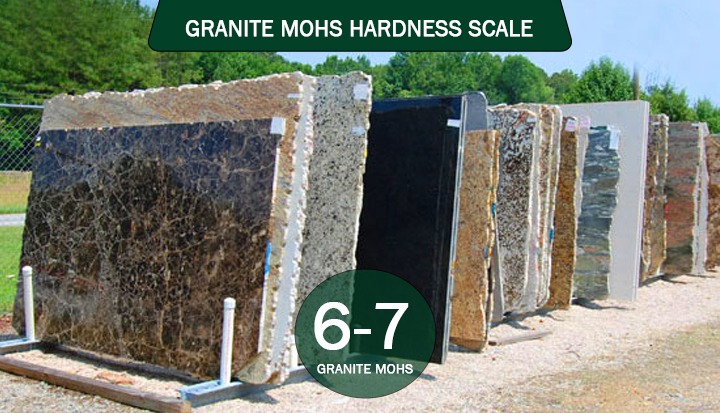When choosing granite for your home, whether for countertops, flooring, or outdoor spaces, one crucial factor to consider is granite hardness. But how do you measure how hard granite really is? That’s where a granite hardness scale comes into the picture.
Like most minerals and rocks, the hardness scale used for measuring granite’s hardness is called the Mohs hardness scale. If you’ve ever wondered how durable granite is compared to other stones or materials, this guide will clear things up in an easy-to-understand way.
What is the Mohs Hardness Scale?
The Mohs hardness scale is a system developed by German mineralogist Friedrich Mohs in 1812 to rank minerals based on their ability to resist scratching. The scale ranges from 1 (the softest) to 10 (the hardest). For example, talc sits at 1, meaning it’s extremely soft, while diamond tops the scale at 10 as the hardest naturally occurring material.
Where Does Granite Fall on the Hardness Scale?
Granite ranks between 6 and 7 on the Mohs hardness scale. This means it’s harder than marble, limestone, and most other natural stones used in construction, but not as hard as quartzite or diamond. Its high hardness level makes it an excellent choice for areas that need a durable and scratch-resistant surface, like kitchen countertops and outdoor paving.
Why Granite’s Hardness Matters
The hardness of granite directly affects its performance and longevity in various applications. Here’s why it’s important:
- Scratch resistance – Since granite is relatively hard, it resists scratches from common household items like knives and pots.
- Durability – Harder materials tend to last longer, making granite an excellent long-term investment.
- Maintenance – A harder stone requires less frequent repairs or refinishing compared to softer stones like marble.
- Suitability for heavy use – Because of its hardness, granite can withstand high foot traffic when used in flooring and doesn’t chip easily under normal conditions.
Comparing Granite to Other Popular Stones
To give you a better perspective, here’s how granite compares to other common materials:
- Marble (3-5 on the Mohs scale) – Softer than granite, making it more prone to scratches and etching.
- Quartzite (7 on the Mohs scale) – Slightly harder than granite and offers superior scratch resistance.
- Soapstone (1-2 on the Mohs scale) – Extremely soft and prone to scratches, though it has a unique aesthetic appeal.
- Limestone (3-4 on the Mohs scale) – More prone to wear and tear compared to granite.
Thickness of Granite and Its Impact on Hardness
The thickness of granite plays a role in its durability and application. Generally, granite slabs come in two standard thicknesses:
- 2 cm (3/4 inch) slabs – Common for wall cladding and some countertops but may require additional support.
- 3 cm (1 1/4 inch) slabs – More durable, preferred for kitchen countertops and flooring due to their strength.
While the actual hardness rating remains the same regardless of thickness, a thicker slab naturally provides better resistance to cracking and chipping under pressure.
Choosing the Right Granite for Your Needs
Now that you understand granite hardness, how do you decide which type of granite is best for your space? Here are some quick tips:
- For kitchen countertops: Opt for a harder granite variety with a polished surface to resist scratches and stains.
- For outdoor spaces: Consider a flamed or honed finish for better grip and durability against weather conditions.
- For flooring: Choose thicker slabs (3 cm) if the area sees heavy foot traffic.
Final Thoughts
Understanding the Mohs hardness scale for granite helps you make informed decisions when selecting this beautiful natural stone for your home or business. With a rating of 6-7, granite is a perfect balance of durability and beauty, making it ideal for multiple applications. Whether you're upgrading your kitchen, adding a luxurious flooring touch, or enhancing your outdoor spaces, knowing about granite hardness ensures you choose a stone that stands the test of time.
Looking for high-quality granite that matches your needs? Contact Quality Marble India today for expert guidance and premium-grade granite selections!







